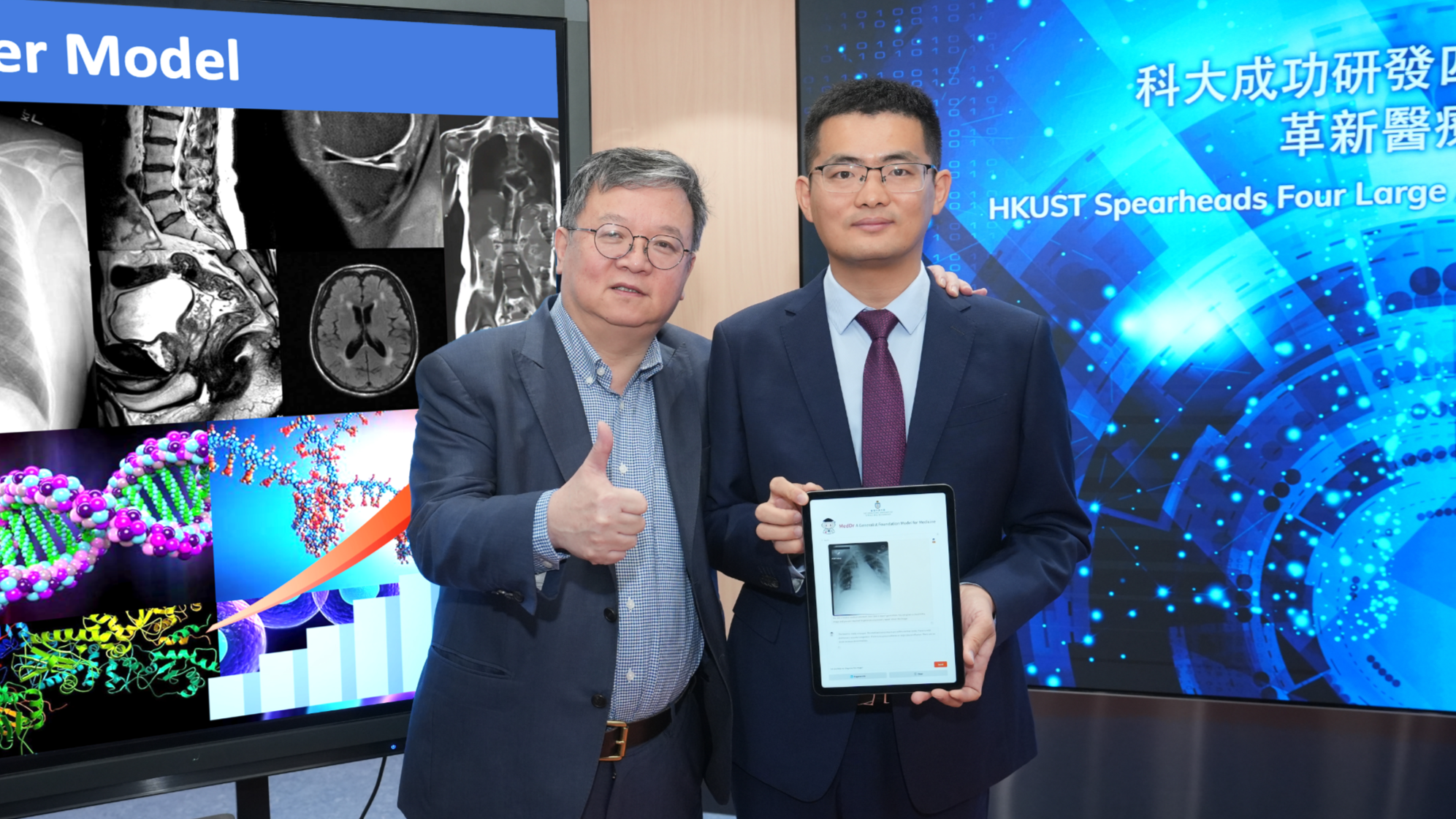
Four AI medical models developed by the Hong Kong University of Science and Technology, including a "medical ChatGPT", can assist with diagnosing up to 30 types of cancers and other diseases, potentially reducing diagnosis time by up to 40 percent, the school announced on Thursday.
During a media briefing, Chen Hao, assistant professor in the HKUST Department of Computer Science, who leads the pioneering project, introduced MedDr, which functions as a versatile AI medical generalist akin to a "medical GPT".
The AI tool can generate reports and provide initial diagnoses using medical images, allowing users to submit close-up images for analysis and receive treatment recommendations from the chatbot, Chen explained.
READ MORE: AI giant to invest HK$400 million in HK amid the city’s tech push
Chen said he hopes the model can save doctors 30 to 40 percent of their time, significantly improving their efficiency and freeing them up to handle tasks of higher value.
Chen added that the university will collaborate with local hospitals and consult more doctors to ensure the accuracy of the tool.
According to HKUST, MedDr is one of the largest open-source software developments available in general medicine. A recent study by Shanghai AI Laboratory recognizes it as one of the best existing generalist models.
Another AI model, MOME, focuses on diagnosing one of the most common cancers among Hong Kong women — breast cancer.
Chen said it assists doctors in analyzing patients' breast MRIs, helping them to swiftly distinguish between benign and malignant breast tumors, potentially averting unnecessary pathological biopsies.
This model can also predict patient responses to chemotherapy, facilitating the formulation of suitable treatment plans, Chen added.
Chen noted that the system accuracy of this model can rival that of radiologists with five or more years of experience, achieving a rate surpassing 90 percent. This achievement was made possible through partnerships with five Chinese mainland hospitals and the analysis of over 10,000 patient cases.
Additionally, the four models include pathology assistant tools mSTAR and XAIM, which dissect how AI medical systems make decisions.
READ MORE: Generative AI offers new hope for people with incurable diseases
HKUST said that research of the AI models was carried out using the university's AI computing resources. With sufficient arithmetic power, these AI medical systems are able to process large amounts of data and achieve outstanding performance.
Provost of the university Guo Yike, speaking at the same media briefing, described this as the first concrete step toward modernizing healthcare.
He said that HKUST is actively pursuing the establishment of Hong Kong's third medical school, with the development of AI-integrated modern healthcare being a significant future direction for the university.
Contact the writer at stephyzhang@chinadailyhk.com


